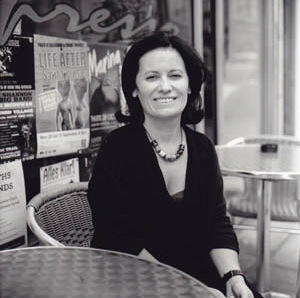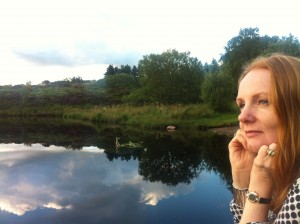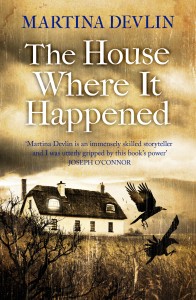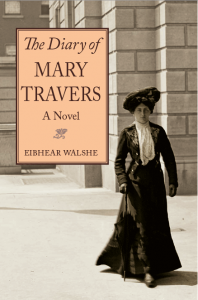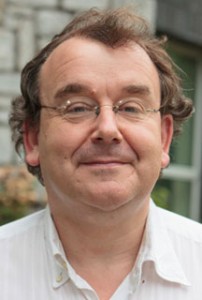Writing for Media concentrates on the area where fiction and journalism overlap. Long-form journalism, blog-posting, serial fiction writing and contributing to online communities will be studied and students get a chance to experiment with some, or all of these forms, and learn how to pitch their work for publication.
Author Archives: ConnollyC
Writing the Self: Fiction & Non-Fiction / EN6033 (10 credits)
Memoir, biography and autobiography constitute some of the most dynamic and exciting forms of life writing and this module introduces students to advanced level study of theories and practice around the writing of biography and memoir, by locating key examples in literature and culture from writers such as Wilde, Proust, McGahern, Sage, O’Faolain and others. It allows students to explore the creative practices around their own use of memoir and memory recall, within the genres of poetry, fiction and other forms of writing and, week by week, draws on a variety of techniques to open out this vital element within the imagination.
The Business of Writing / EN6034 (5 credits)
This core module promotes an awareness of the business and commercial aspects of writing and introduces students to the practical aspects of working as a professional writer. The module also encourages students to gain experience of working in creative or cultural organisations, and draws on speakers from the world of publishing, the arts and literary organisations.
Dissertation in Creative Writing / EN6040 (40 credits)
[April – August 2018 – All Creative Writing Staff]
This is the final module of the MA in Creative Writing, undertaken from April to August – September (in the case of part-time students, in the second year). The dissertation comprises a substantial piece of creative writing, usually in a single genre (fiction, short story, poetry, memoir, radio drama etc.). This final project is the capstone of the learning experience on the MA and is written with the support and direction of a member of staff, with professional experience of the genre being undertaken. The length of the work will depend on the chosen genre, but is normally no longer that 15,000 words.
Workshop with Writer in Residence / EN6042 (5 credits)
[Spring Semester 2018 – Thomas Morris]
This is a special guest workshop offered by the School of English Writer-in-Residence. The theme and genre of the workshop will vary, depending on the specialty of the writer-in-residence. This year, short story writer and consulting editor of The Stinging Fly, Thomas Morris, will be leading the workshop.
Poetry 1 / EN6031 (10 credits)
The core of Poetry 1 is a weekly, three hour workshop which includes focused reading of one aspect of poetic craft (eg. form, imagery, sound, language), as well as a reading and workshopping of one poem that each student has written over the previous week. The aim of the workshop is to write poems that are of a publishable standard and to allow students to mine the inevitable and imaginative wellspring of material that will comprise their poems.
There will be an opportunity to read widely and to also discuss elements of technique and theory. Students receive regular one-to-one tutorials and extensive feedback on their poetry.
This course is a pre-requisite for Mythology and Contemporary Poetry.
Mythology and Contemporary Poetry / EN6060 (10 credits)
Madeleine D’Arcy shortlisted for Edge Hill Short Story Prize
We are thrilled to announce that Madeleine D’Arcy, a graduate of our inaugural MA in Creative Writing class, has been shortlisted for the Edge Hill Short Story Prize. Congratulations Madeleine!
Now in its ninth year, the Edge Hill Short Story Prize it is the only UK award that recognises excellence in a published collection of short stories. Prizes include a £5,000 main prize and a £1,000 Readers’ Prize.
‘Writing Historical Fiction’
‘Writing Historical Fiction’ at the Annual Conference of the Eighteenth-Century Ireland Society at UCC, Friday 12th June.
The School of English is sponsoring a panel discussion on ‘Writing Historical Fiction’ as part of the Annual Conference of the Eighteenth-Century Ireland Society, 12-14 June 2015. The panel features Martina Devlin, author of The House where it Happened, a gripping novel set in Antrim in 1711/12 and exploring Ireland’s only witchcraft trials. The panel will also include Mary Morrissy, lecturer in Fiction, and Laura McKenna, PhD candidate in Creative Writing. The panel takes place on Friday, 12 June, 2.30-4. This session is open to all.
Full details of the conference programme and online registration for those wishing to attend the other conference sessions are available on the ECIS website.
http://www.ecis.ie/annual-conference/
The Diary of Mary Travers shortlisted for Novel of the Year Award 2015..
We’re delighted that The Diary of Mary Travers, written by our colleague Eibhear Walshe (Director of the MA in Creative Writing), is one of five novels shortlisted for the Kerry Group Irish Novel of the Year Award 2015. More information here. Congratulations Eibhear!

